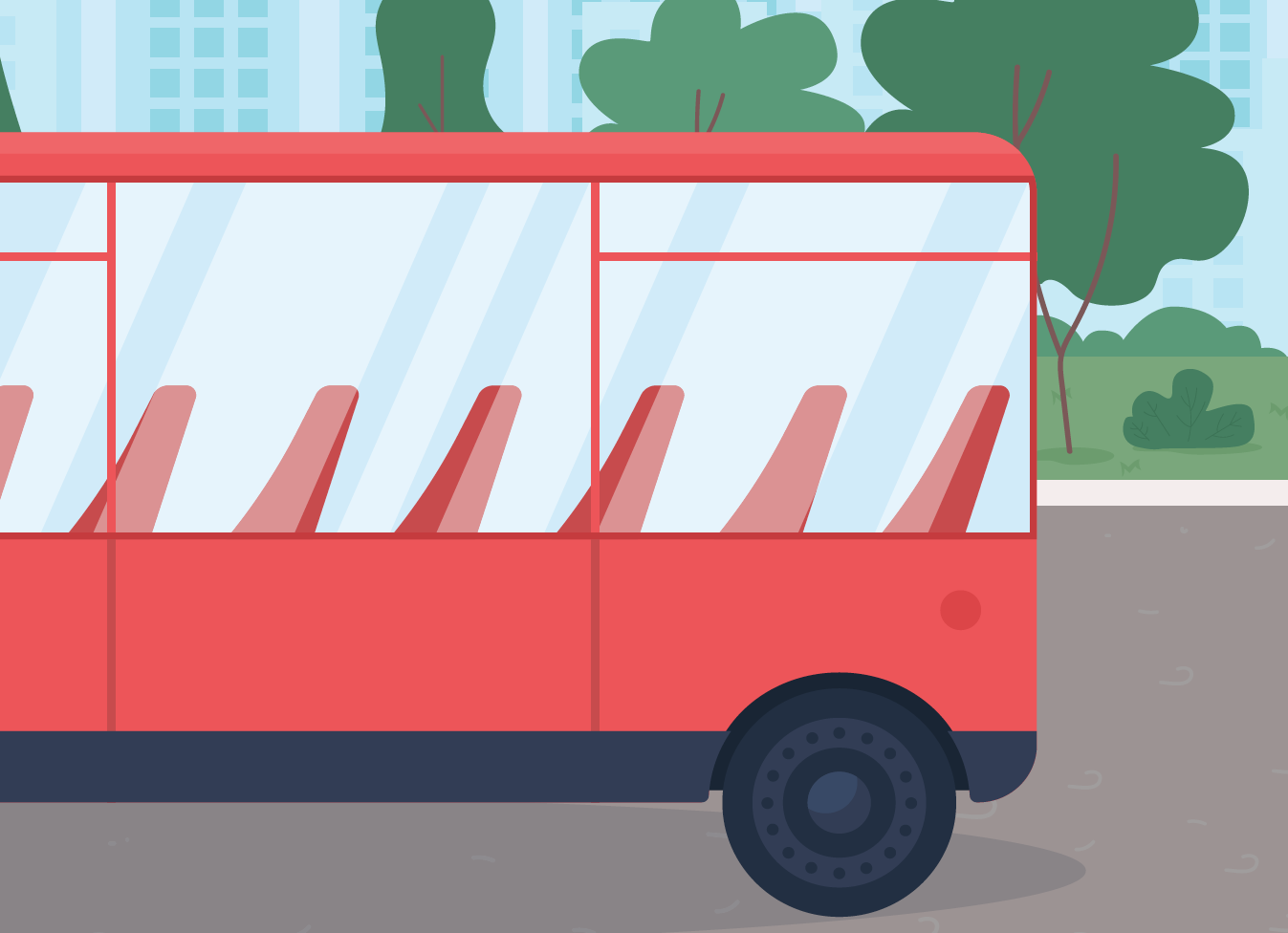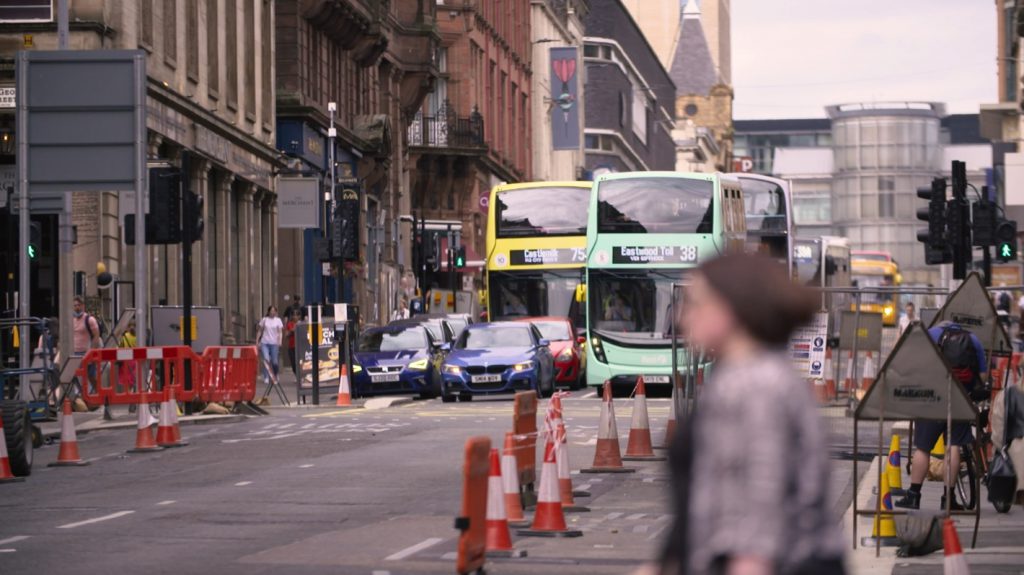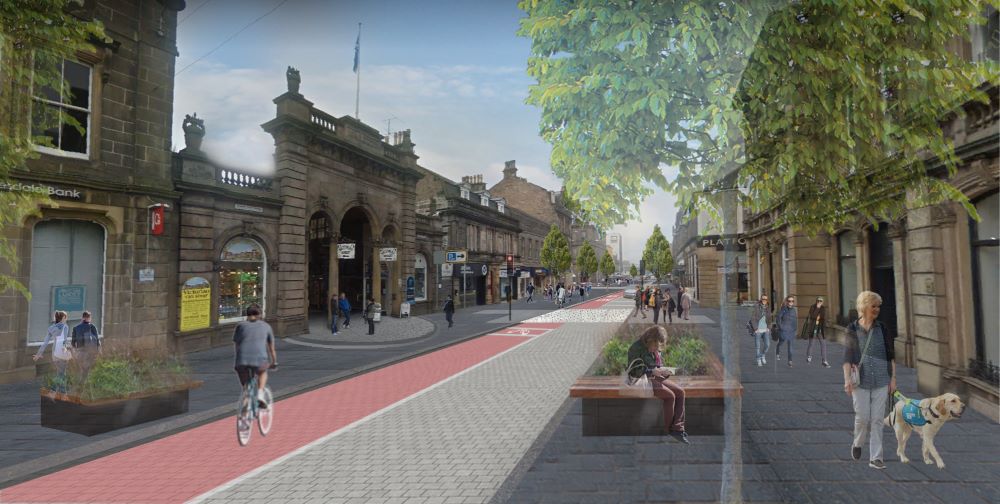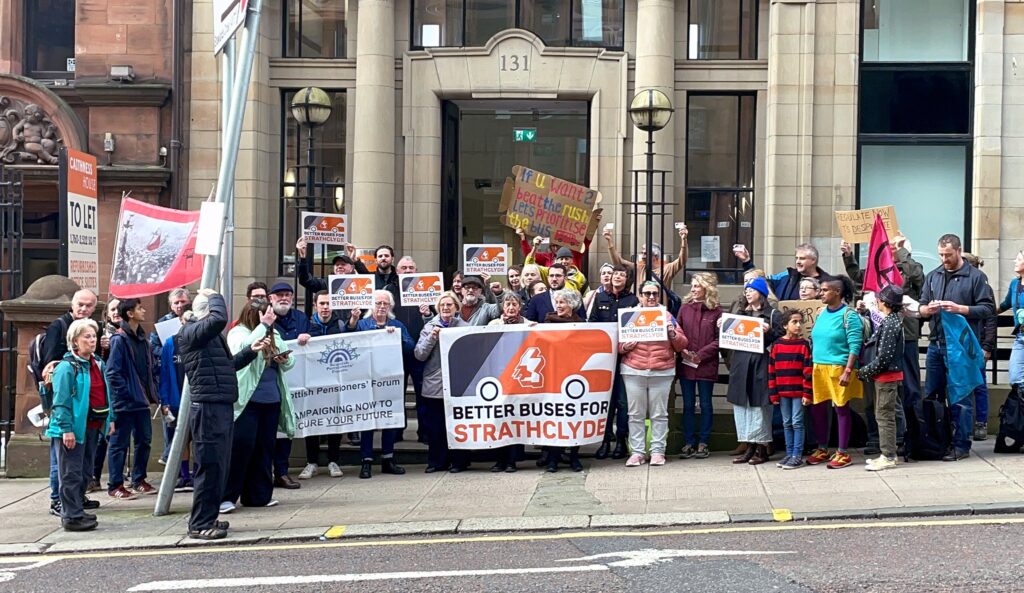
What’s happened with Scotland’s transport this year?
Transport is our biggest source of climate emissions in Scotland. Our current system is causing toxic air in our cities and entrenching inequality across the country. We need to change the way we get around.
The good thing is that we know what works – with the right investment in public transport and infrastructure for walking, wheeling and cycling, people will be able to get around without cars.
Progress is happening, and although it’s slower than we’d like, it is worth celebrating.
Here are some of our highlights from 2023.
Scotland met air pollution limits for the first time
In our annual analysis of pollution in January, we found that 2022 was that first year that everywhere in Scotland was within the legal air pollution limits (excepting 2020, for obvious reasons). Just because it’s legal doesn’t mean it’s safe, and Glasgow’s Hope Street only just made it within the limit, but it’s fantastic to celebrate this progress.
Glasgow’s Low Emission Zone came into full effect

We hope that air quality will have improved even further in Glasgow this year, as the city welcomed its long-awaited Low Emission Zone. The city had already begun to limit the most polluting buses, but the zone came into full effect with cars and other vehicles in June this year. Edinburgh, Aberdeen and Dundee will follow suit in 2024.
There’s an opportunity to create 22,000 more jobs in public transport
We released new research which outlines the additional investment needed from the Scottish and UK Governments to increase public transport passenger numbers to reduce climate emissions.
In it, we found 22,000 jobs could be directly created in Scotland by investing in public transport (roles like bus drivers and mechanics), plus hundreds of thousands more indirectly in areas like manufacturing and infrastructure construction.
Inverness is being redesigned to prioritise people, not cars

The Highland Council has voted to reduce traffic on Academy Street in Inverness, one of the most polluted streets in the country. Campaigners in Inverness fought hard to make this happen, against a strong business lobby, and showed councillors that what people really want is a city that they can enjoy, not just drive through.
Peak pricing on trains has been scrapped
In October, the Scottish Government scrapped peak pricing on trains for a six-month trial period. An off peak return for a journey between Glasgow and Edinburgh is almost half the price of peak time, so this will make train travel much more affordable.
The move shows how public ownership can keep fares from climbing, supporting the shift away from cars.
New campaign for buses to be taken back into public control

We’ve joined with trade unions, health charities, students associations and more to launch a new campaign to bring buses in the Strathclyde region back into public control.
The campaign, Better Buses for Strathclyde, is calling on Strathclyde Partnership for Transport (SPT) to re-regulate the buses so that it can set routes that serve the needs of communities, ensure affordable fares and create a well-connected public transport system that links up with trains and ferries.
The petition already has over 4000 signatures, and we still have a number of months to go until the crucial meeting in March. Sign it here.
We hope this will be the first of many campaigns like it in Scotland.
